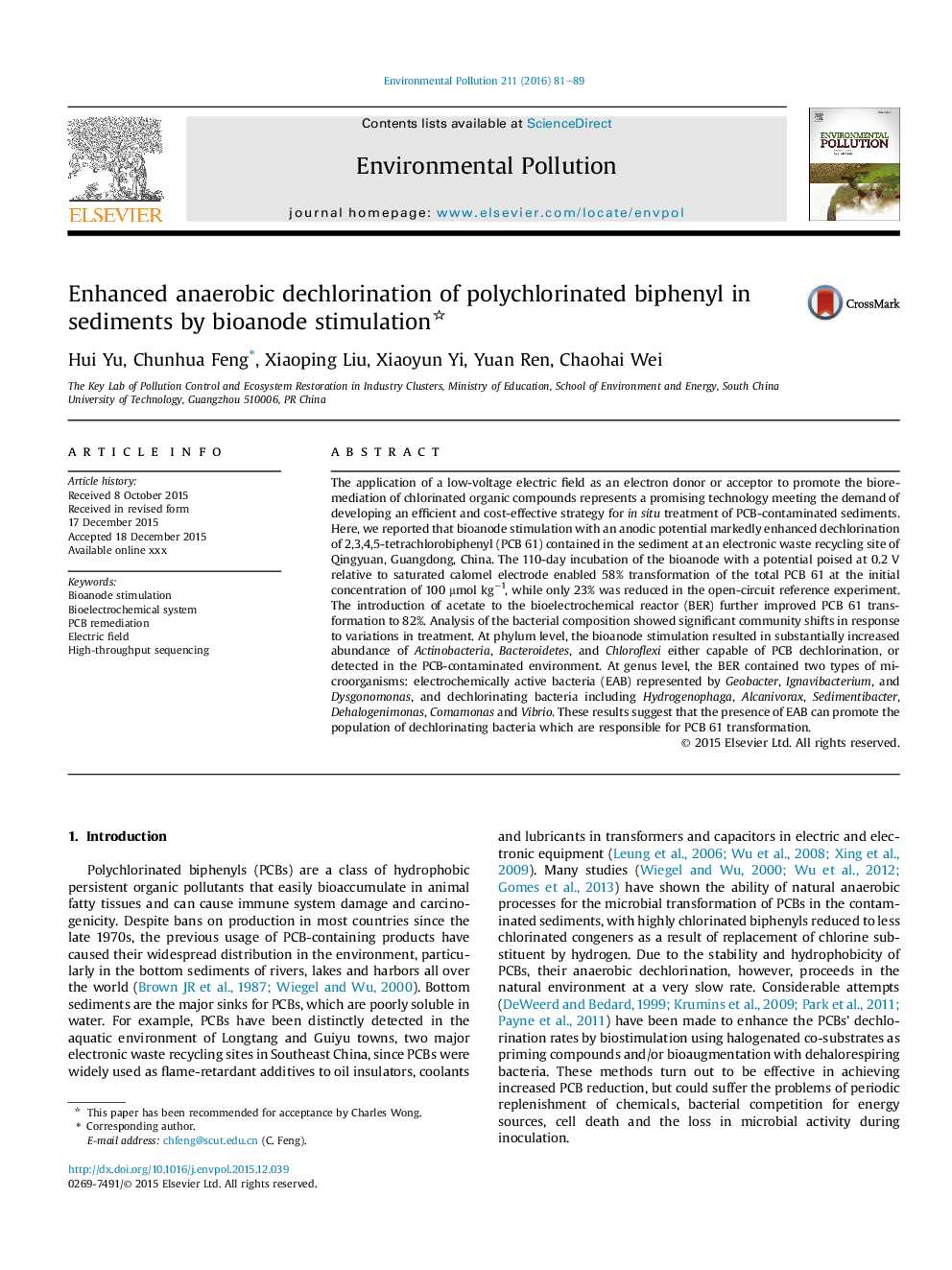| کد مقاله | کد نشریه | سال انتشار | مقاله انگلیسی | نسخه تمام متن |
|---|---|---|---|---|
| 6315472 | 1619162 | 2016 | 9 صفحه PDF | دانلود رایگان |
عنوان انگلیسی مقاله ISI
Enhanced anaerobic dechlorination of polychlorinated biphenyl in sediments by bioanode stimulation
ترجمه فارسی عنوان
تحویل بی هوازی بی هوازی از بیفنیل پلی اچار شده در رسوبات با تحریک بیوانود
دانلود مقاله + سفارش ترجمه
دانلود مقاله ISI انگلیسی
رایگان برای ایرانیان
کلمات کلیدی
موضوعات مرتبط
علوم زیستی و بیوفناوری
علوم محیط زیست
شیمی زیست محیطی
چکیده انگلیسی
The application of a low-voltage electric field as an electron donor or acceptor to promote the bioremediation of chlorinated organic compounds represents a promising technology meeting the demand of developing an efficient and cost-effective strategy for in situ treatment of PCB-contaminated sediments. Here, we reported that bioanode stimulation with an anodic potential markedly enhanced dechlorination of 2,3,4,5-tetrachlorobiphenyl (PCB 61) contained in the sediment at an electronic waste recycling site of Qingyuan, Guangdong, China. The 110-day incubation of the bioanode with a potential poised at 0.2 V relative to saturated calomel electrode enabled 58% transformation of the total PCB 61 at the initial concentration of 100 μmol kgâ1, while only 23% was reduced in the open-circuit reference experiment. The introduction of acetate to the bioelectrochemical reactor (BER) further improved PCB 61 transformation to 82%. Analysis of the bacterial composition showed significant community shifts in response to variations in treatment. At phylum level, the bioanode stimulation resulted in substantially increased abundance of Actinobacteria, Bacteroidetes, and Chloroflexi either capable of PCB dechlorination, or detected in the PCB-contaminated environment. At genus level, the BER contained two types of microorganisms: electrochemically active bacteria (EAB) represented by Geobacter, Ignavibacterium, and Dysgonomonas, and dechlorinating bacteria including Hydrogenophaga, Alcanivorax, Sedimentibacter, Dehalogenimonas, Comamonas and Vibrio. These results suggest that the presence of EAB can promote the population of dechlorinating bacteria which are responsible for PCB 61 transformation.
ناشر
Database: Elsevier - ScienceDirect (ساینس دایرکت)
Journal: Environmental Pollution - Volume 211, April 2016, Pages 81-89
Journal: Environmental Pollution - Volume 211, April 2016, Pages 81-89
نویسندگان
Hui Yu, Chunhua Feng, Xiaoping Liu, Xiaoyun Yi, Yuan Ren, Chaohai Wei,
